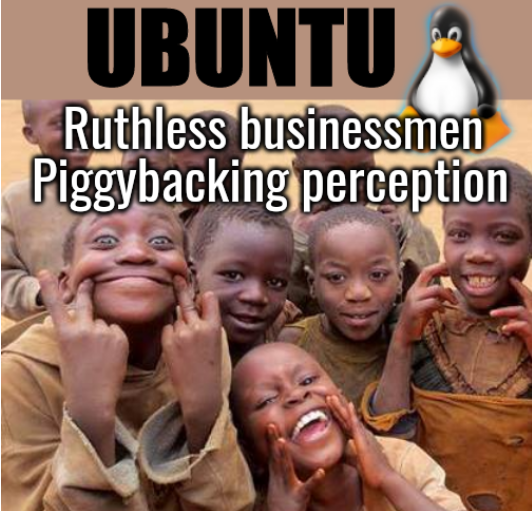20 Years Later More People Understand That Canonical/Ubuntu Was Falsely Marketed to the GNU/Linux Community
6 months ago: [Video] Canonical Isn't (No Longer) Serious About Making GNU/Linux Succeed in Desktops/Laptops
Earlier this week the Canonical/Ubuntu sites (both of them!) published this blog post that said: "The launch of Ubuntu in 2004 was a step-change for everyday users and developers everywhere. Nicknamed “Ubuntu Linux” in its early days, to differentiate it from its various cousins in the [GNU/]Linux world, it has since lost the need for its surname and grown to become a powerful force."
While I'd be among the first to acknowledge that in its early days Ubuntu made important contributions to widespread adoption of GNU/Linux, it mostly did that at the expense of the likes of Mandriva and the lives of Debian developers.
"Ubuntu has turned 20," an associate reminder us today. "Maybe there are issues which have not been covered in the few retrospectives it has gotten so far. Aside from crippling Debian by poaching the most active developers, it had a very good start."
I personally used the very first version of Ubuntu (at work). It looked a lot like Debian at the time, as maybe that's just what it was in 2004 (re-skinned Debian).
In more recent years Canonical was very shamelessly promoting Microsoft and even Windows. Not kidding! Sadly...
Those of us who value Software Freedom have likely left behind everything from Canonical (already!). A week ago I asked my wife if she wanted to try Lomiri, a.k.a. Unity (she used it for several years after using KDE, but eventually got back to KDE).
She said "no."
Let's remember Ubuntu as a distro that used to have some 'pedigree' in the mid 2000s and gradually lost its popularity, abandoned its community, and started acting like a Microsoft subsidiary. Its former "community manager" is nowhere to be found/seen anymore (obscurity in the Free software world) and many of its best known developers already left the company. Some went on to competing with Canonical, e.g. LXD's rival, Incus, which resulted in a stronger copyleft licence. █


